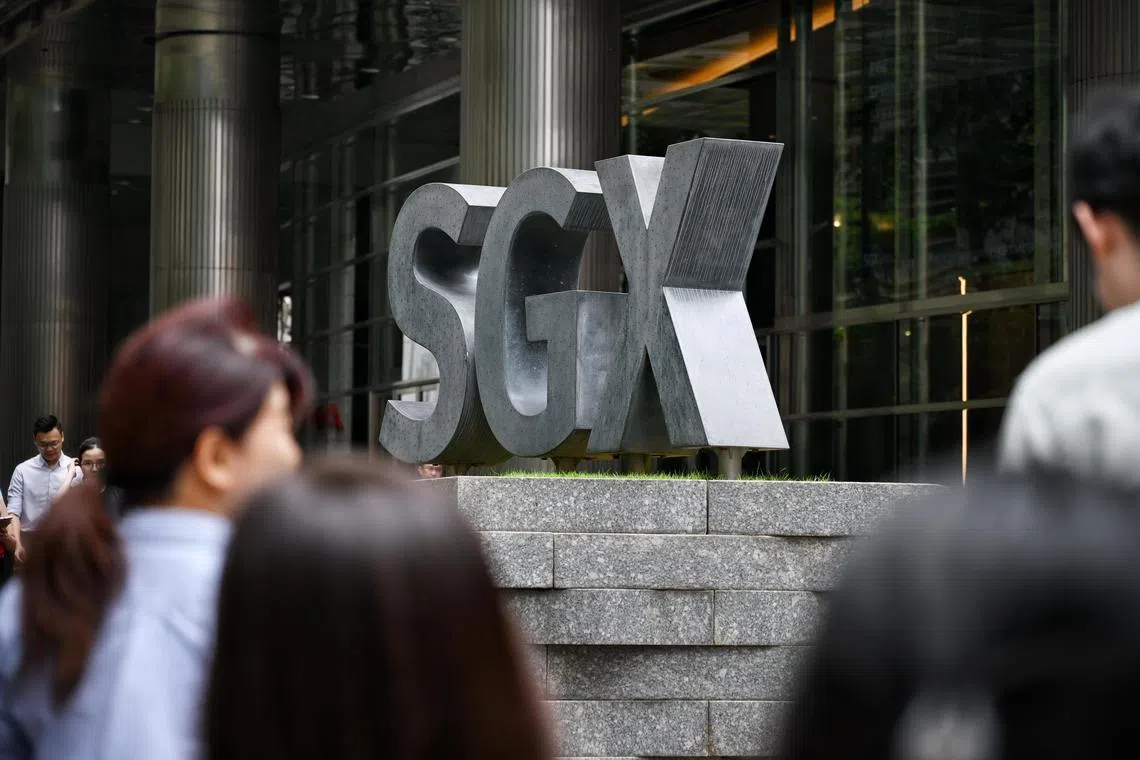Singapore shares left out of regional rally amid weaker sentiment; STI slides 0.1%
Sign up now: Get ST's newsletters delivered to your inbox

The STI’s biggest decliner was SGX, which was trading ex-dividend. It slid 5.8 per cent to $12.69.
PHOTO: ST FILE
Navene Elangovan
Follow topic:
SINGAPORE – Local shares were left out in the cold on Feb 14, while most regional bourses followed Wall Street higher in hopes of an end to the Ukraine war and a pause on US tariffs.
The mood here was more of indifference and sent the benchmark Straits Times Index (STI) down 0.1 per cent, or 5.08 points, to 3,877.50. In the broader market, gainers outstripped losers 349 to 219 on reasonable trade of 1.5 billion shares worth $1.4 billion.
The STI’s biggest decliner was SGX, which was trading ex-dividend. It slid 5.8 per cent to $12.69.
Its decline indicated dampened optimism among investors a day after the Monetary Authority of Singapore revealed its initial proposals to revive the local equity market. Citi Research downgraded its call on SGX to “sell” as it expects the recent optimism priced into the bourse operator’s valuation to unwind.
The biggest gainer was property developer Hongkong Land, rising 4.1 per cent to close at US$4.35.
Offshore and marine company Seatrium was the most actively traded counter by volume, with 51.9 million units worth $132 million traded. The counter rose 1.2 per cent to $2.58.
Wall Street overnight was in stark contrast to the local market after President Donald Trump raised the possibility that the Ukraine war might be nearing some sort of conclusion.
The heat also seemed to be going out of his threats to slap additional tariffs on foreign goods.
Investors liked the sound of that and sent the major US indexes higher. The S&P 500 rose 1 per cent, while the Dow added 0.8 per cent and the tech-heavy Nasdaq climbed 1.5 per cent.
Most regional bourses took their cue from New York and racked up gains. Australian shares climbed 0.2 per cent to a record close after hitting a new all-time high in intra-day trading.
The Shanghai Composite rose 0.4 per cent and South Korea’s Kospi was up 0.3 per cent. THE BUSINESS TIMES

